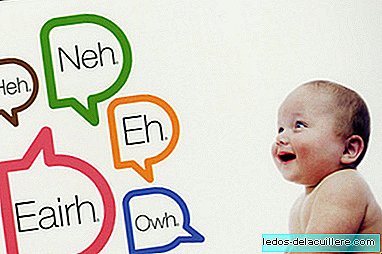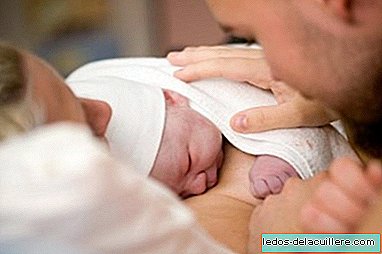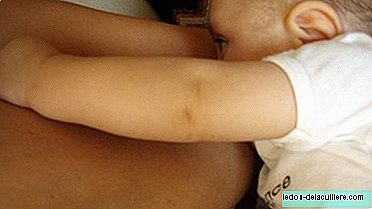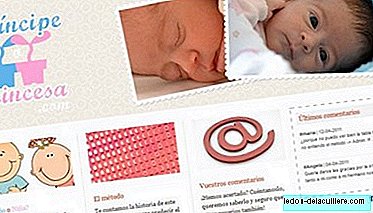
We have already spoken on other occasions of the special way in which babies speak and communicate and also how we speak to them, a "jargon" with similar characteristics in the different cultures of the world.
Our way of speaking to them until they fully develop their linguistic competence is called LAN, Language Adapted to Children (IDS), and this is how babies like to be spoken to: high tone, greater tonal variation , exaggerated articulated vowels and pauses, short and eloquent phrases, repetitions to ensure the message ...
We also know a lot about how babies communicate with us. But, What happens when young children speak alone? Do they change their way of expressing themselves according to whether their parents are ahead or not?
Thanks to an experiment conducted in the early 1980s by psychologists and linguists, called "Narratives from the Crib", we know that babies also have their own personal language. I would love to check it out personally with my oldest daughter, two and a half years old, since she already practices her monologues regularly.
The project at that time was starring Emily, a 2-year-old girl who lived in New Haven (United States). For 15 months they put a tape recorder in her crib and recorded, for several nights a week, both the conversations her parents had with Emily when they put her in bed and the monologues that the girl had before falling asleep.
A group of researchers, led by Katherine Nelson of Harvard University, analyzed the 122 transcripts of these solo monologues.
They discovered then that, just as parents talk more infantiloidly with babies, babies also talk more infantilely with parents. But alone, babies speak more adult, complex and advanced.
Carol Fleisher Feldman, a member of the team that met to analyze Emily's tapes, would write the following:
In general, the language she used to speak to herself was so rich and complex (compared to that she used with adults) that, as scholars of the language development we were, we began to doubt whether the description offered by the scientific literature until the date about language acquisition might not be misrepresenting the actual conduct of linguistic knowledge. As soon as the lights went out and the parents left the room, Emily manifested an amazing mastery of forms of language that we would never have suspected judging by her (everyday) way of speaking.

When the girl spoke alone, the vocabulary, grammar and even sentence structure were enriched. Stories were invented, narrations that explained and organized everything that happened every day, using resources of emphasis and making comments about his imaginary days.
Here we have one of the Emily's monologues when she was 32 months old old, especially what happens in your Friday routine:
Tomorrow when we get out of bed, first me and you, dad and mom, have breakfast ... we have breakfast as usual, and then we will play and then as soon as Dad arrives, Carl arrives, and we will play for a little while. And then Carl and Emily are going to go together in someone's car, we go to the nursery in a whisper, and then, when we get there, we will all get out of the car, get into the nursery, dad will kiss us and then he is going to leave, and then we say, then we will say goodbye, then he goes to work and we are going to play nursery. What is fun? Because sometimes I go to daycare because it is daycare. Sometimes I stay with Tanta all week. And sometimes we play moms and dads. But normally, sometimes, ehm, ah, I go to daycare. But today I go to daycare in the morning. In the morning, Dad in the morning, when and as always, we will have breakfast we always do, and then we will ... then we will ... play. Then we will, then the bell will ring, and here is Carl, and then Carl, then we will play, and then ...
Would she fall asleep at this point? It is undoubtedly the testimony of a very interesting question, a pity that we have no knowledge of other studies in this regard, with the language of more children to analyze and compare.
In any case, what immense capacity these children have to capture everything that is heard around them and to discern when we speak like babies, with that childish language, and they respond to us the same. And how do they talk with other babies? Do they follow these adapted language guidelines or do they trust to speak to them as elders? Can you imagine an "adult" conversation between two young children?
After knowing all this, I will not only "review the day" with my oldest daughter when she goes to sleep, a story that fascinates her. From now on I will ask her to do it too, and I will be attentive to her words when I am not in front ...
I might be surprised with a more elaborate speech than usual, what babies say when they are alone and they don't mimic our childish way of speaking to them.












